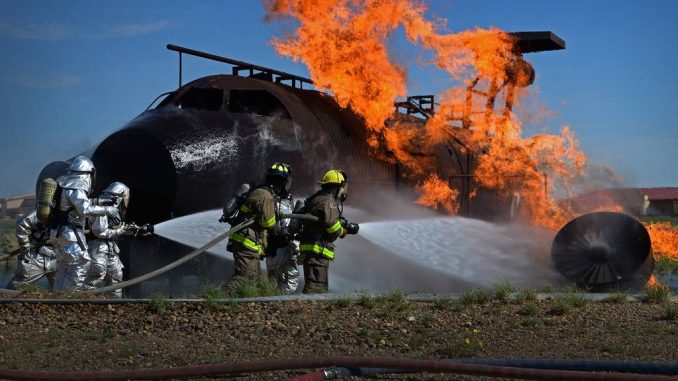
CLOVIS, N.M. (AP) — New Mexico environmental protection officials have wrapped up testing of nearly five dozen private wells near a U.S. Air Force base on the eastern side of the state for so-called “forever chemicals” known as PFAS, which can be toxic to humans and animals.
The state Environment Department said Monday that neither of two PFAS contaminants the U.S. Environmental Protection Agency has established health advisories for were detected in the samples collected during the study. However, other types of PFAS compounds were found at very low levels in nine wells.
Contamination with PFAS chemicals has been documented at and around Cannon Air Force Base near Clovis as well as at Holloman Air Force Base near Alamogordo and other locations in New Mexico. The state sued the U.S. Air Force in 2019, saying the federal government has a responsibility to clean up plumes of toxic chemicals left behind by past military firefighting activities.
Efforts are underway to determine the extent of the contamination.
RELATED
:quality(70)/cloudfront-us-east-1.images.arcpublishing.com/mco/F44UXPGO4BANVHK56IS6Z42YCI.JPG)
State lawmakers in 2020 approved $100,000 for the well testing program in two eastern counties near the Cannon base. The state Environment Department partnered with the U.S. Geological Survey on the sampling and well owners were notified of the results.
New Mexico Environment Secretary James Kenney said in a statement Monday that PFAS are a threat to human health and the environment and that gathering scientific evidence will be key.
“This effort equips regulators, residents and businesses with critical information about the safety of our water supply and adds to our growing body of knowledge about the presence of these harmful chemicals in eastern New Mexico,” Kenney said.
PFAS, short for per- and polyfluoroalkyl substances, are used in nonstick frying pans, water-repellent sports gear, stain-resistant rugs and countless other consumer products. The compounds have been associated with serious health conditions, including cancer and reduced birth weight.
While legal wrangling with the Air Force continues, state officials also have pushed for federal officials to designate PFAS as hazardous substances.
On Monday, the federal government announced a plan intended to restrict PFAS from being released into the environment, accelerate cleanup of PFAS-contaminated sites such as military bases and increase investments in research to learn more about where PFAS are found and how their spread can be prevented.


Be the first to comment